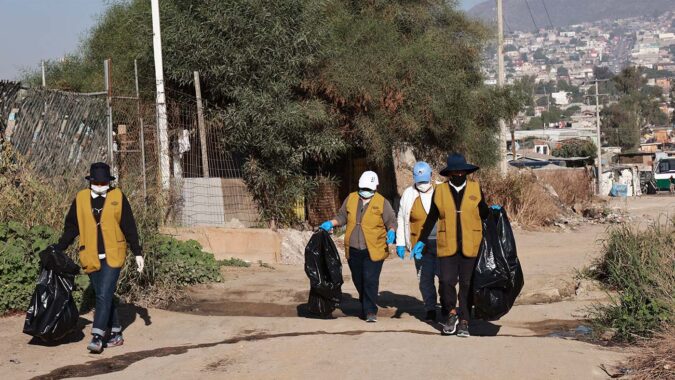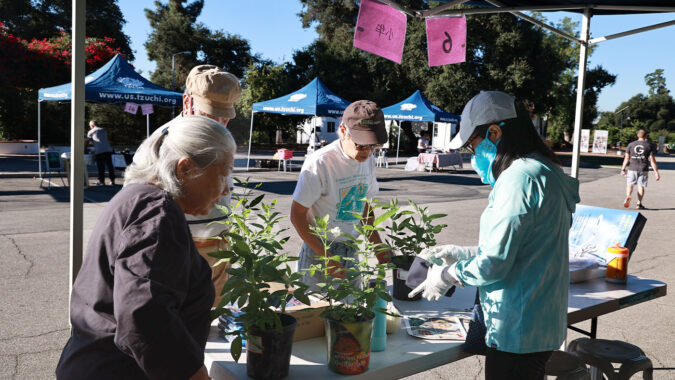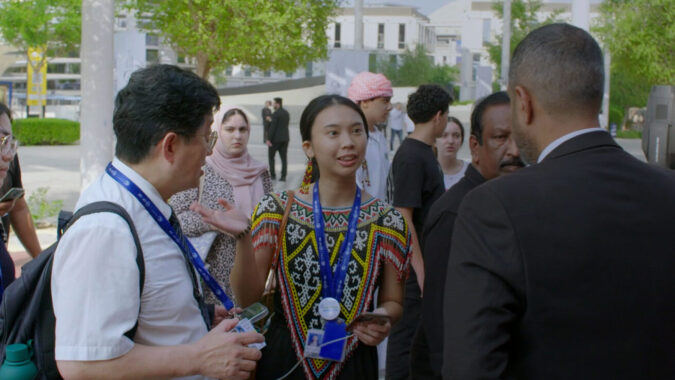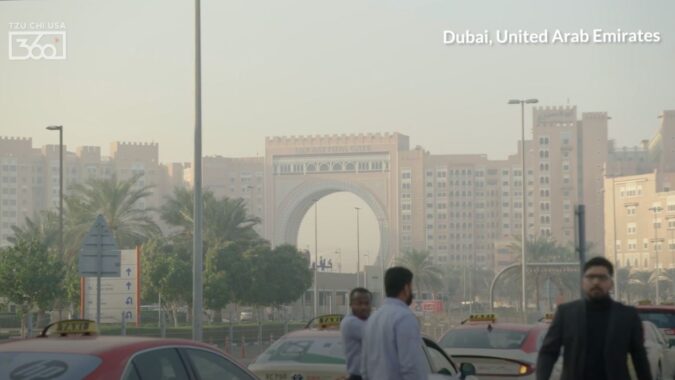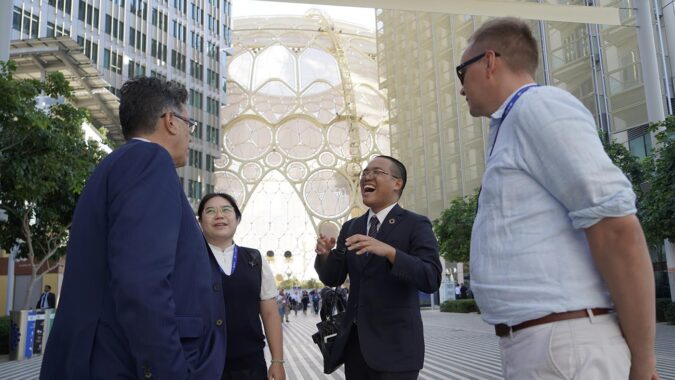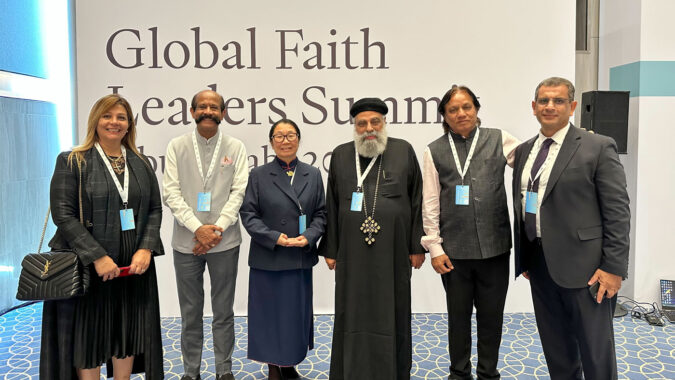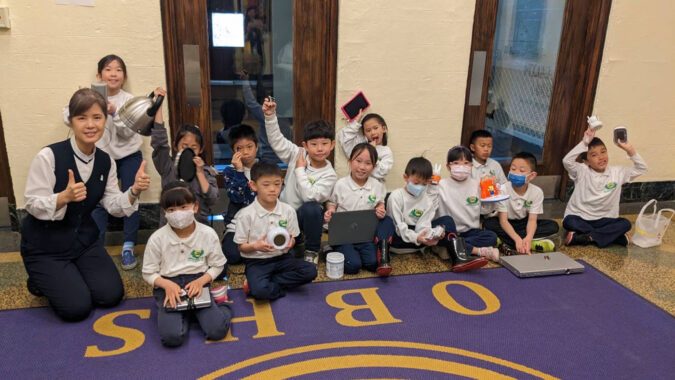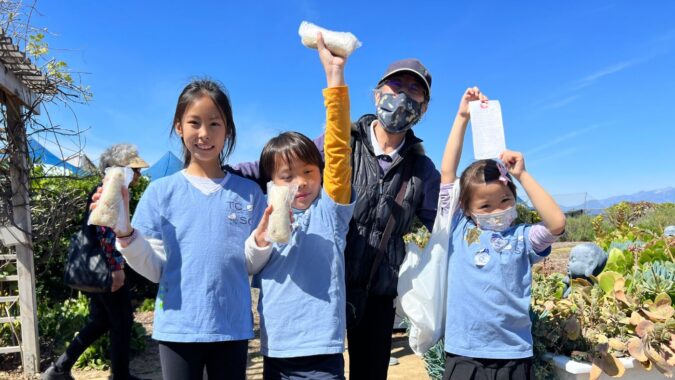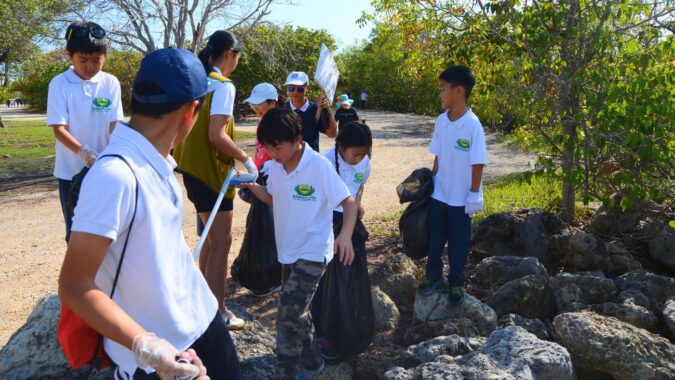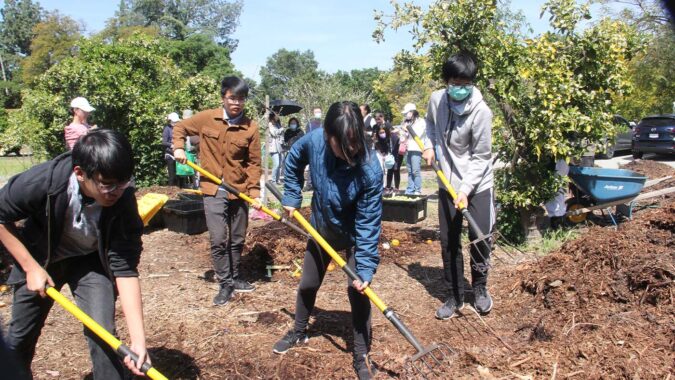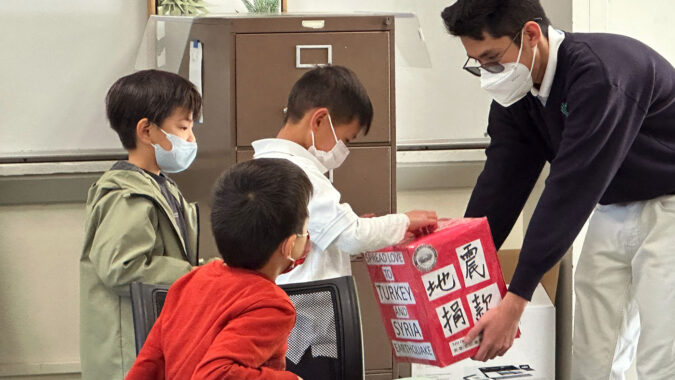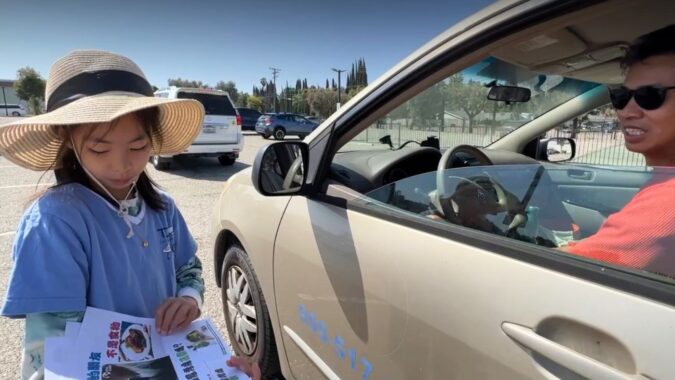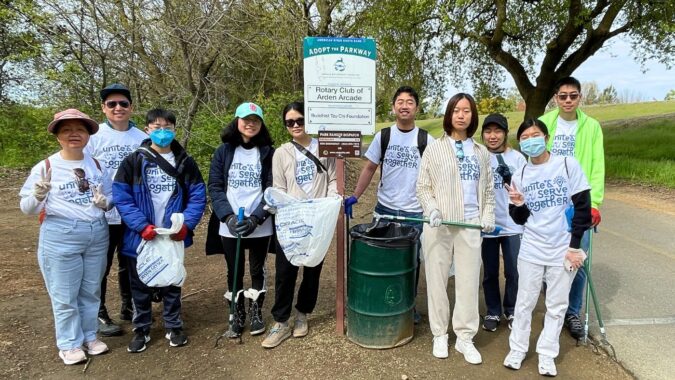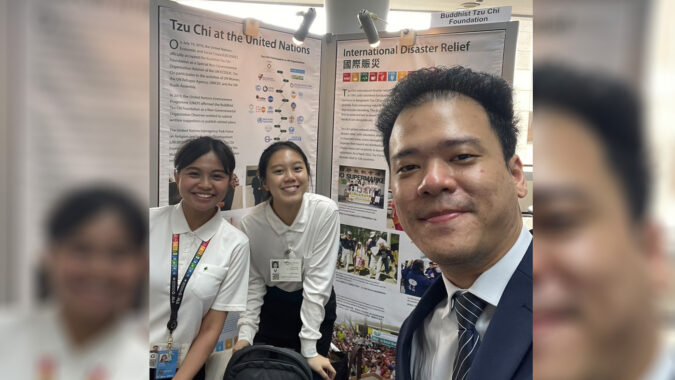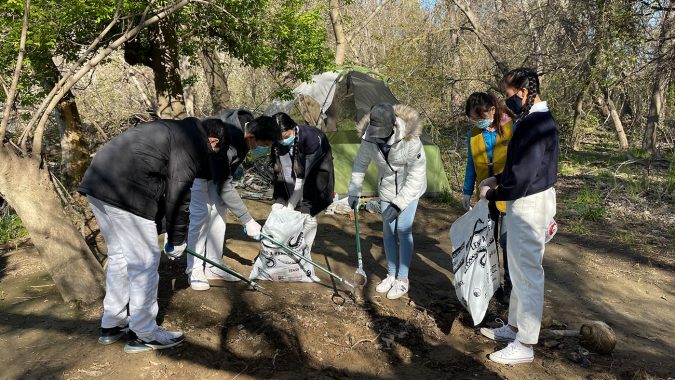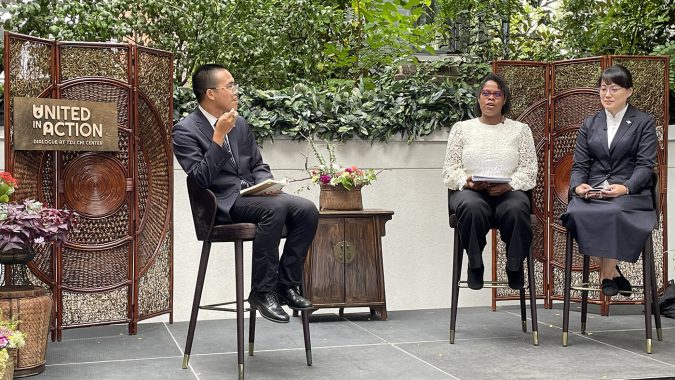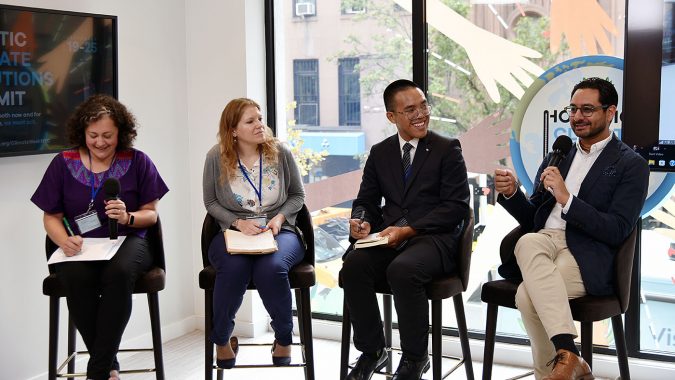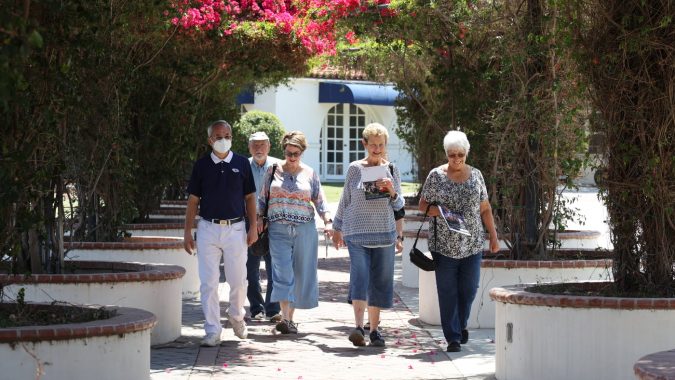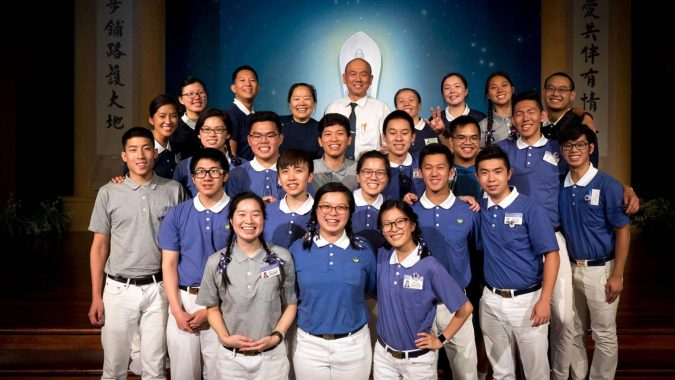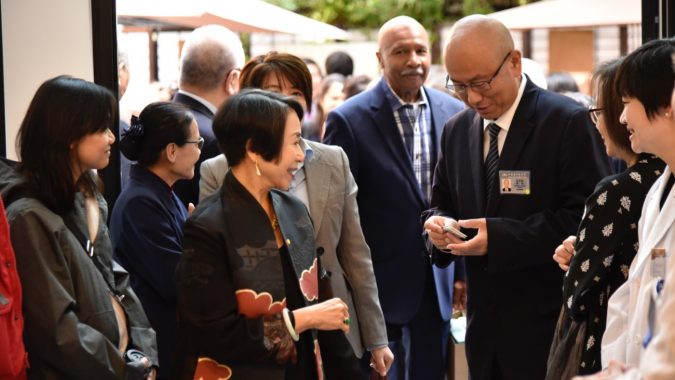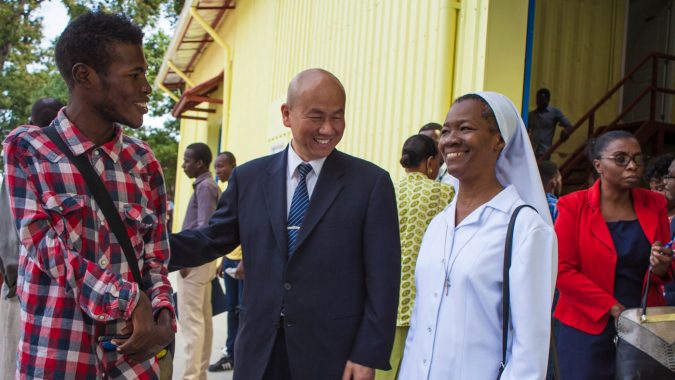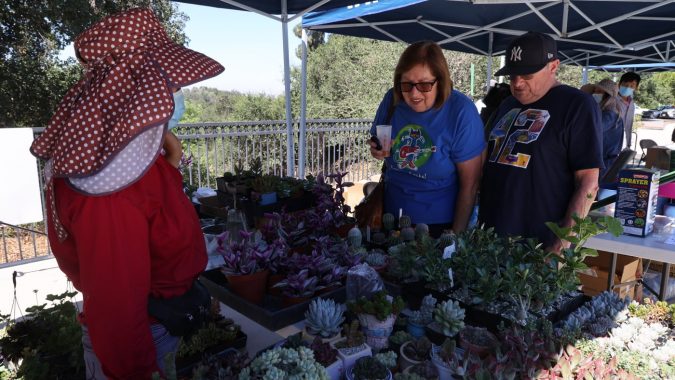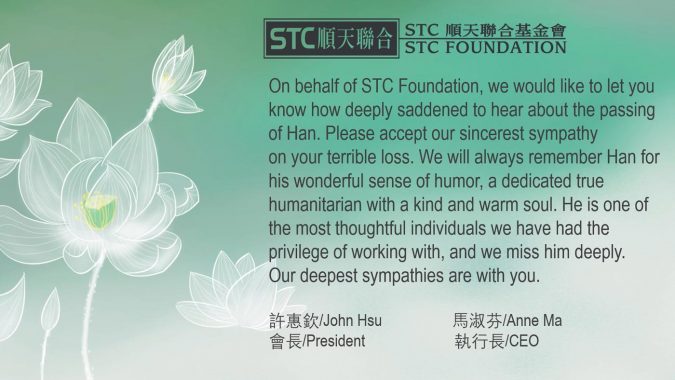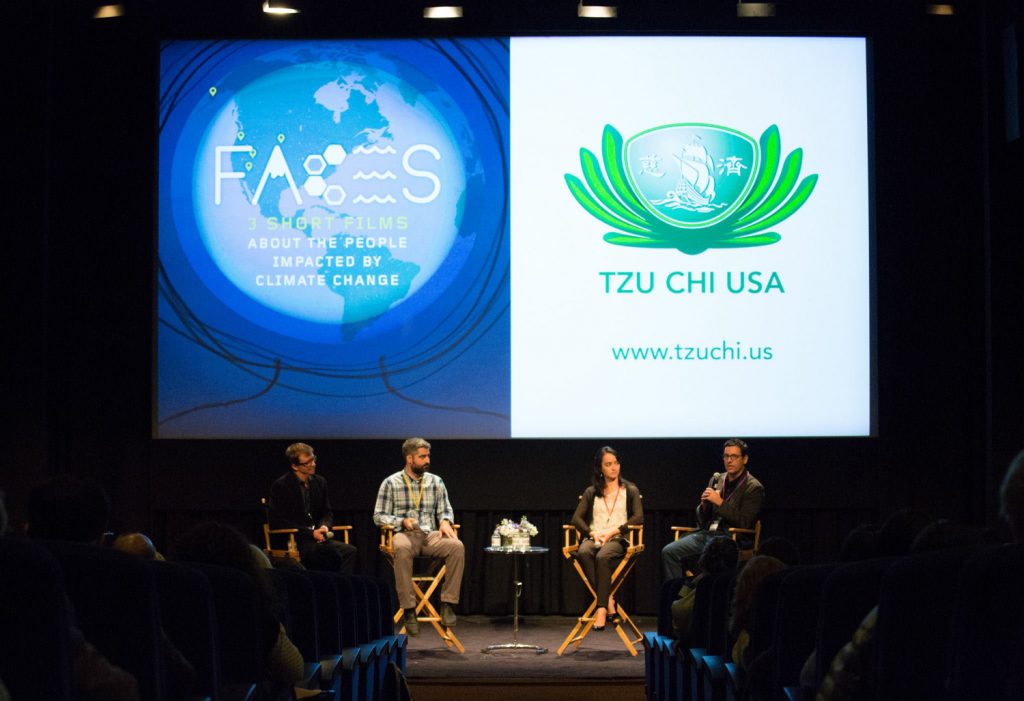
I’ve been writing for Tzu Chi USA for a few months now, but since I work remotely, I don’t often get the opportunity to spend time with my colleagues, so this event was special. As we prepared before the audience arrived, setting up information booths and a sumptuous buffet of vegetarian treats, I felt a sense of joy: I was home, working with people whose interests and values truly echo my own.
The venue, the New York Institute of Technology Auditorium, steps away from Columbus Circle, was quite appropriate upon reflection. The heavily trafficked intersection, named after the colonizer Christopher Columbus, was an apt springboard to the topic of anthropogenic climate change. We would soon contemplate how economic factors and industrial technology contribute to this multifaceted problem. Several Native Americans, whose reverence for nature deserves emulation now more than ever, would also share their views in the films we would see.
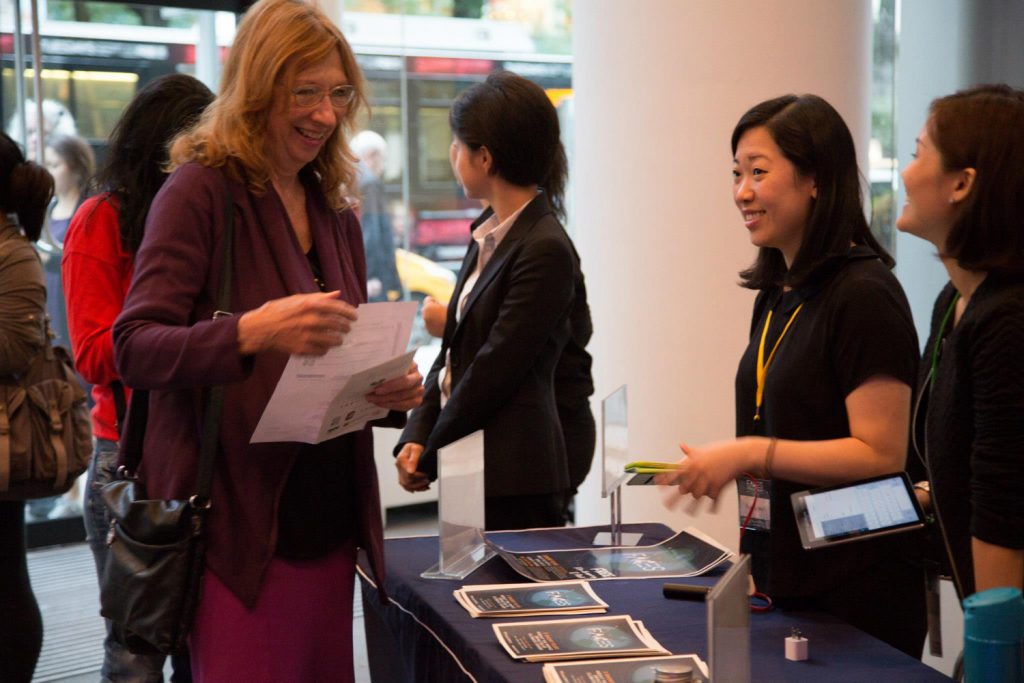
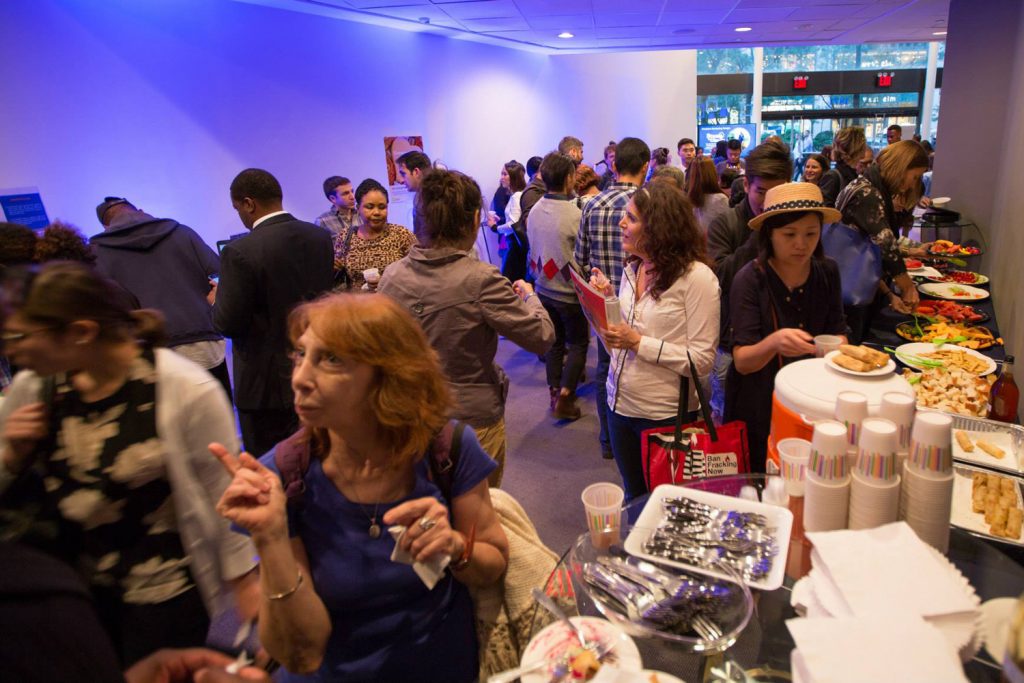
As the public began to arrive, swelling to a crowd that filled the foyer to capacity, I mingled, sharing information about Tzu Chi, and discovered that each conversation quickly narrowed in on topics of gravitas – whether concern about the environment, or increasing frustration with materialism and the search for deeper meaning in life. This was encouraging: People are ready for change, and change is definitely what we need right now. It took several dims of the lights to coax everyone away from their discussions, but finally we were all in the theater.
The screening began with a short video about Tzu Chi’s extensive charitable activities around the globe and in the U.S., and may have left some baffled: They do all this? How come I never heard about this organization before? That’s exactly how I felt when I first learned about Tzu Chi. You wonder why it’s a secret: It isn’t … but sometimes it takes a while to get noticed. A presentation advocating a “compassionate diet” and revealing how industrialized meat production is a major culprit in global warming followed. I truly hope such concrete facts encourage people to adopt vegetarianism, if following their heart and a love for animals doesn’t.
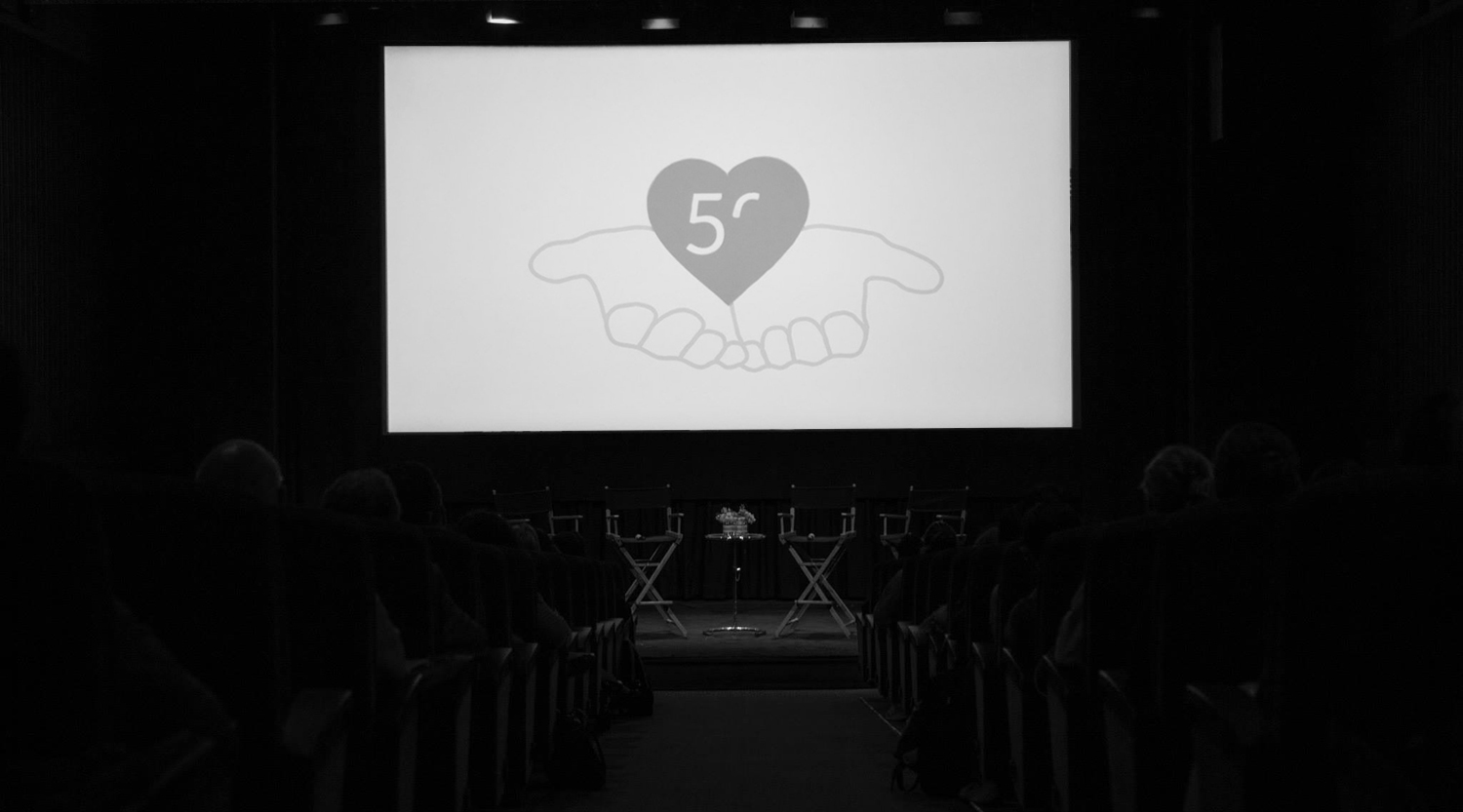
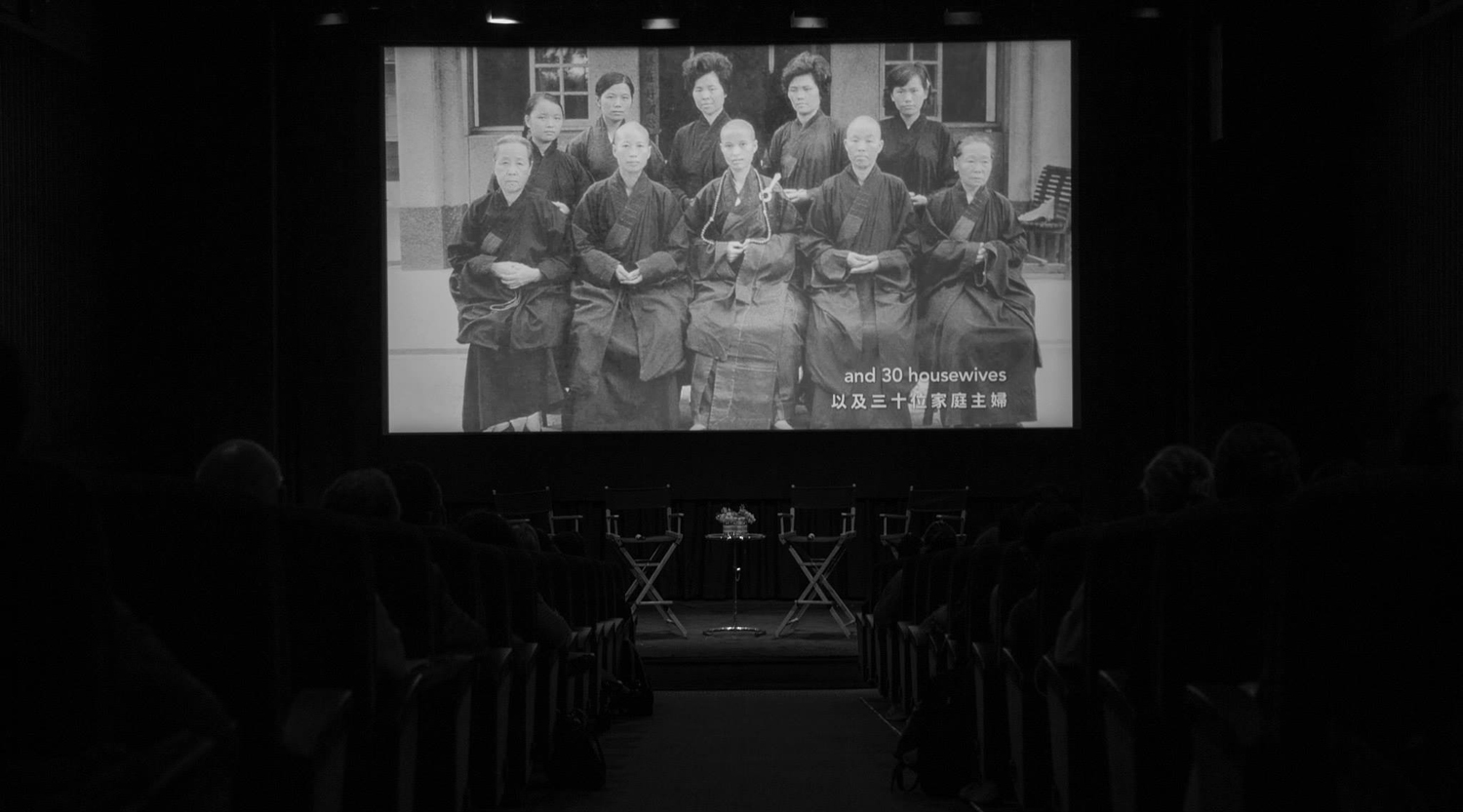
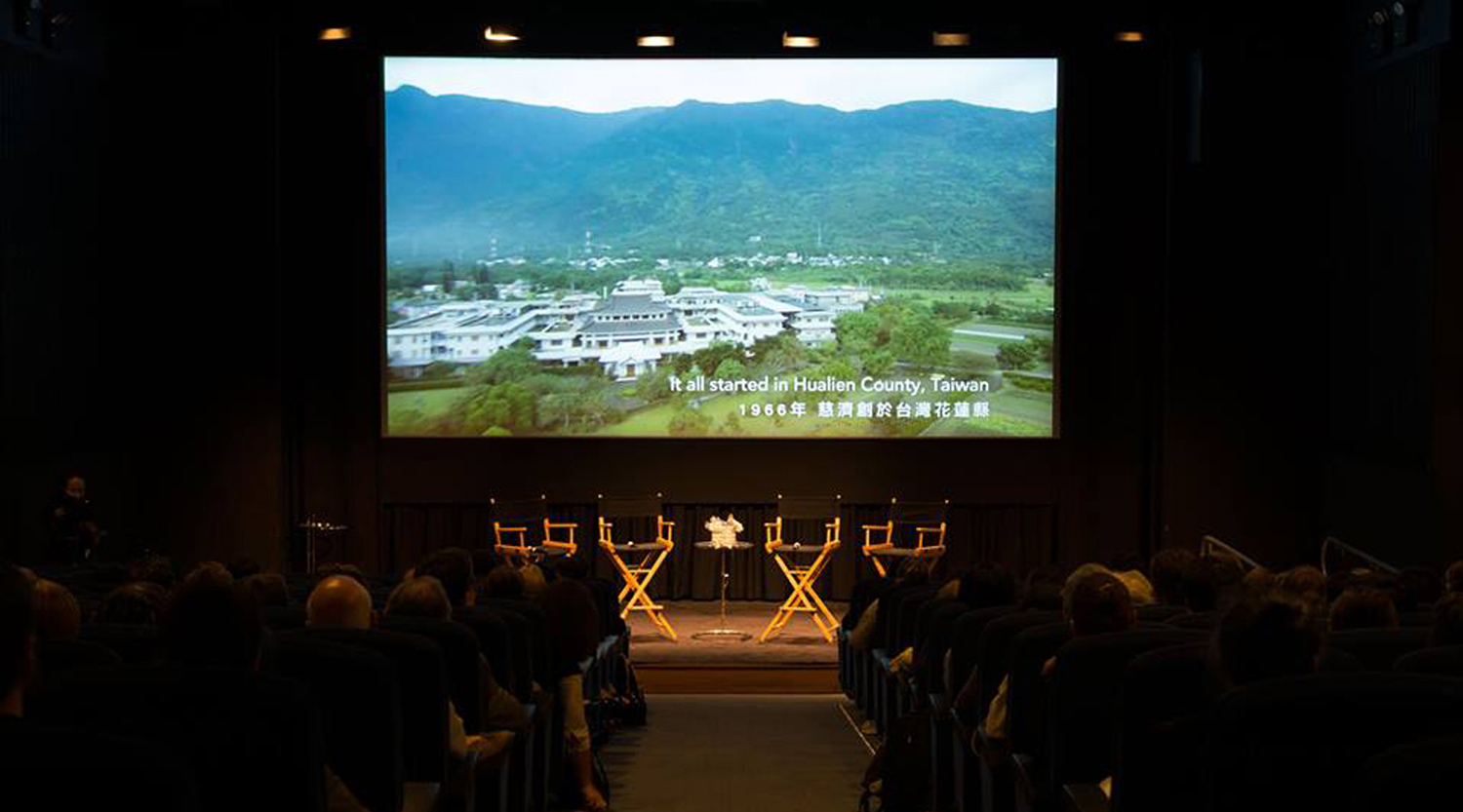
We then reached the core of the program: The three films.
The Disappearing Frontier took us to the frozen landscape of Alaska, where the rising sea is swallowing the coastline and residents in some communities face relocation. Then Keep it Grand dropped us in the middle of the parched Southwest, where a mega tourist site that will have disastrous consequences for water supply is being planned in the Grand Canyon. Finally, Stung by Climate took us around the U.S., to Haiti and France, where drought, deforestation, and unpredictable seasons are having a devastating effect on bees.
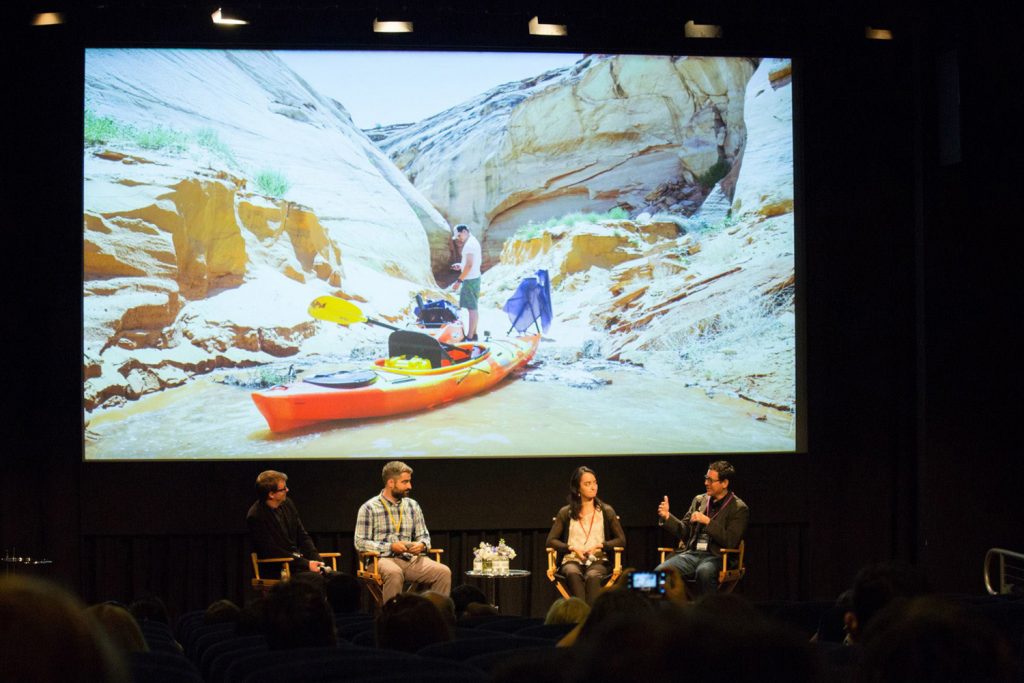
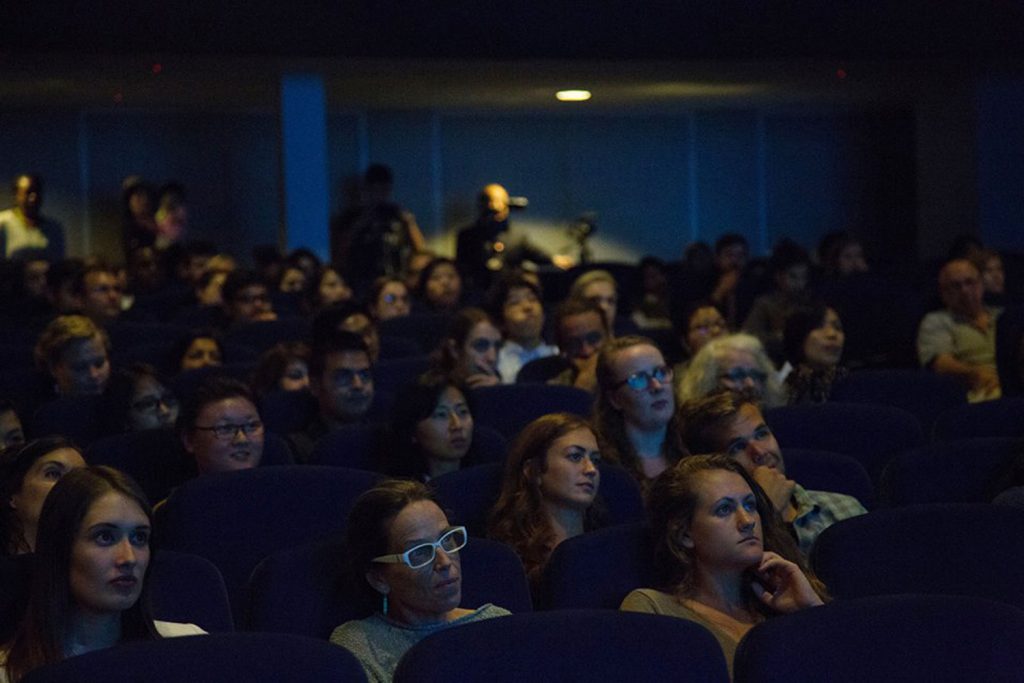
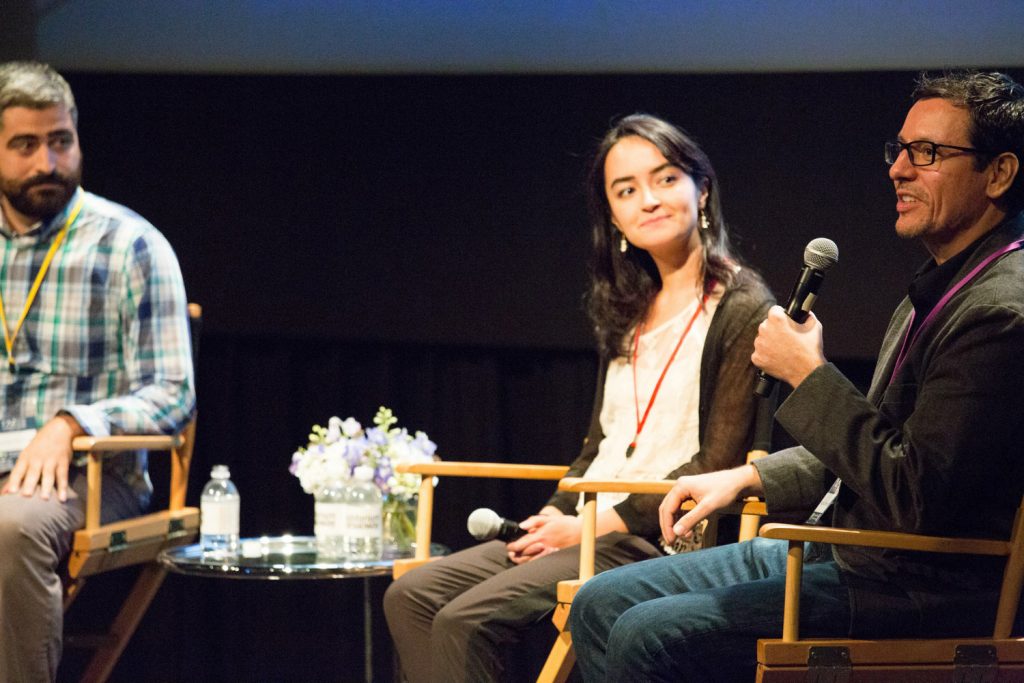
The films were fascinating, each introducing a different facet of climate change in a powerful and engaging way. As one person pointed out in the question period with the three filmmakers that followed, moderated by Dr. Jason Smerdon from Columbia University’s Lamont-Doherty Earth Observatory: Nothing equals actually seeing the things one reads about. When it comes to polar ice melting, there’s nothing like seeing an Alaska Native fisherman bucketing water out of his tent in a place where only ice should be; Or in terms of drought, seeing the “bathtub” ring in Lake Powell, Arizona, which is now over a hundred feet, clearly showing how high the water level used to be; Or to fully grasp how critical bees are to food production, seeing an apple farmer anxiously preparing his grove for bees to pollinate, fully aware that without them, his trees would be barren.
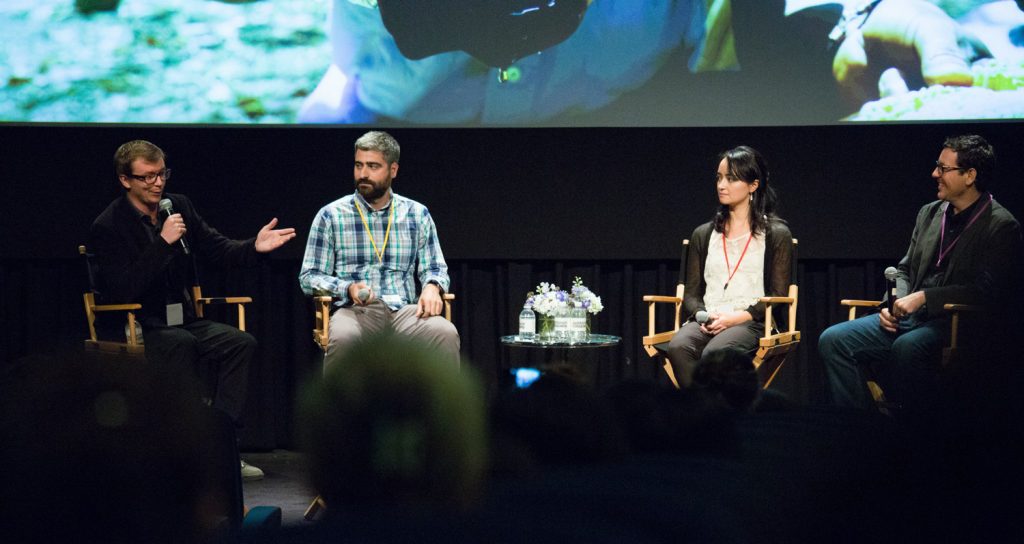
Beyond each film’s individual impact, seeing the three in succession was thought provoking as well. I was struck by how deeply “acclimatized” human beings and animals are to the places they’re from, and reliant on the predictability of conditions there [even the filmmakers’ “technology” couldn’t endure the climate extremes they told us, with cameras freezing, batteries exploding etc.]. While a frozen landscape may be paradise for one, it’s hell for another from a hot and arid place, and vice versa. It’s a matter of conditioning over many generations that engenders that feeling of comfort somewhere. If we could have just left it at that – the way native cultures tend to do – enduring certain hardships associated with a place, discomforts we were fully adapted to.
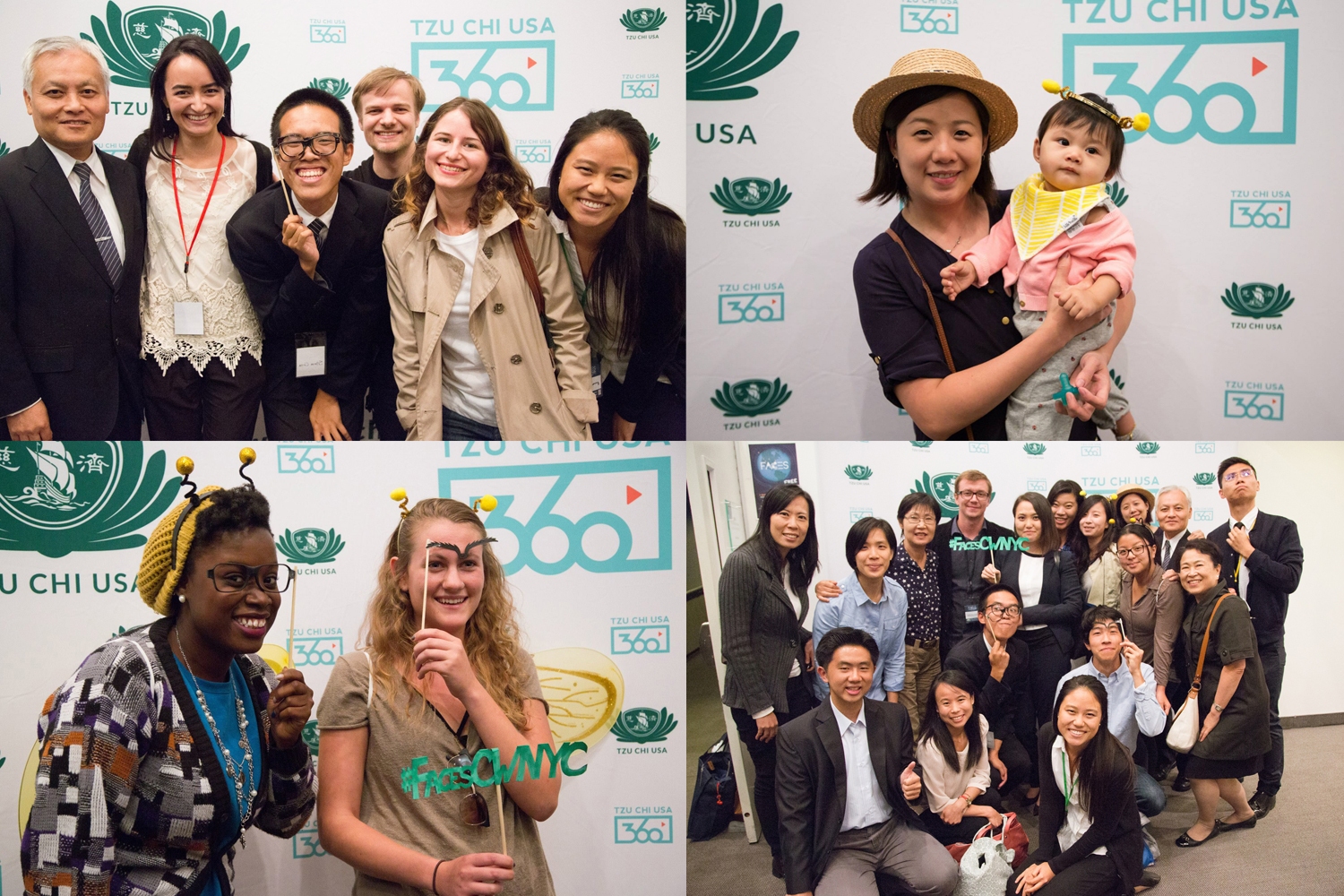
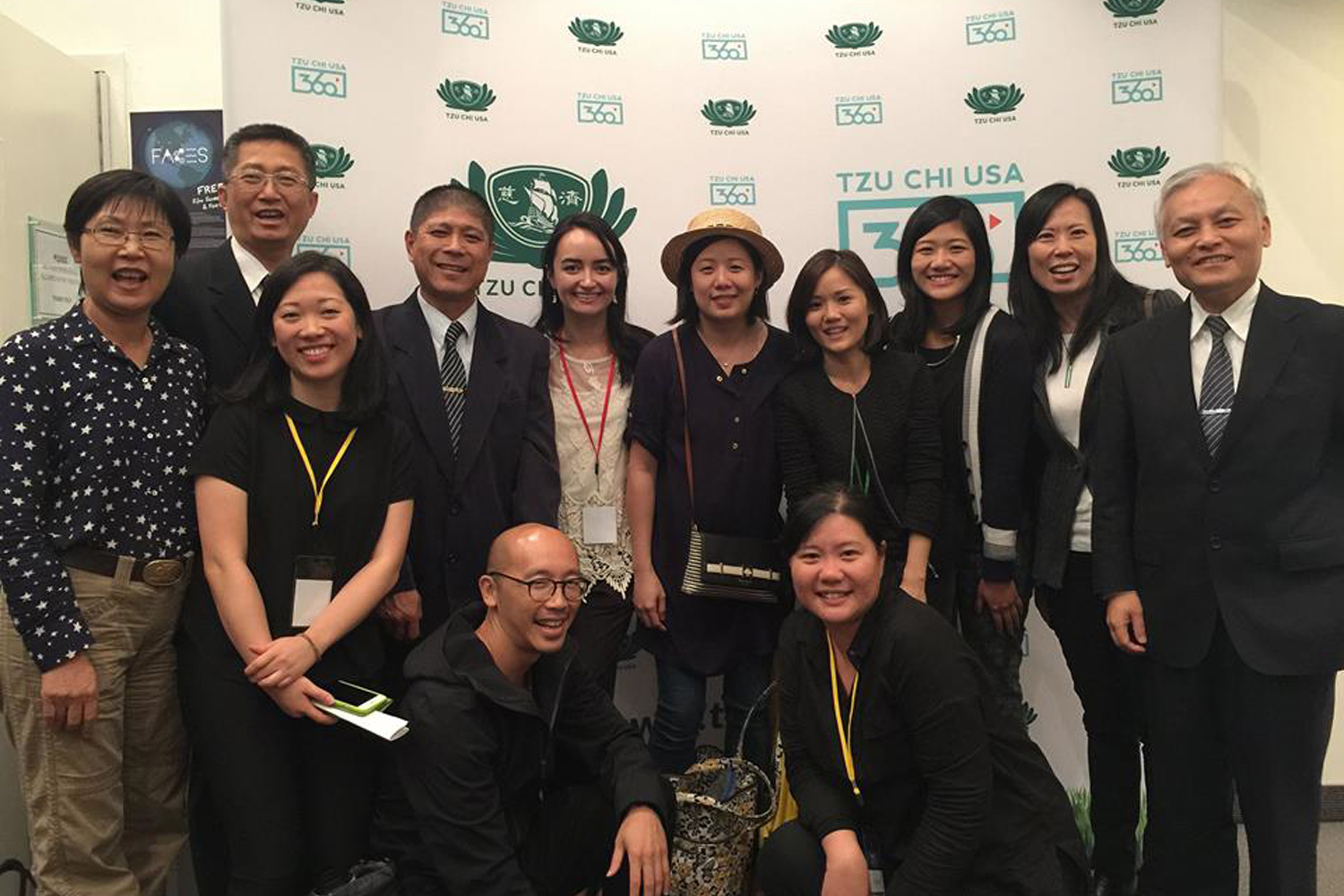
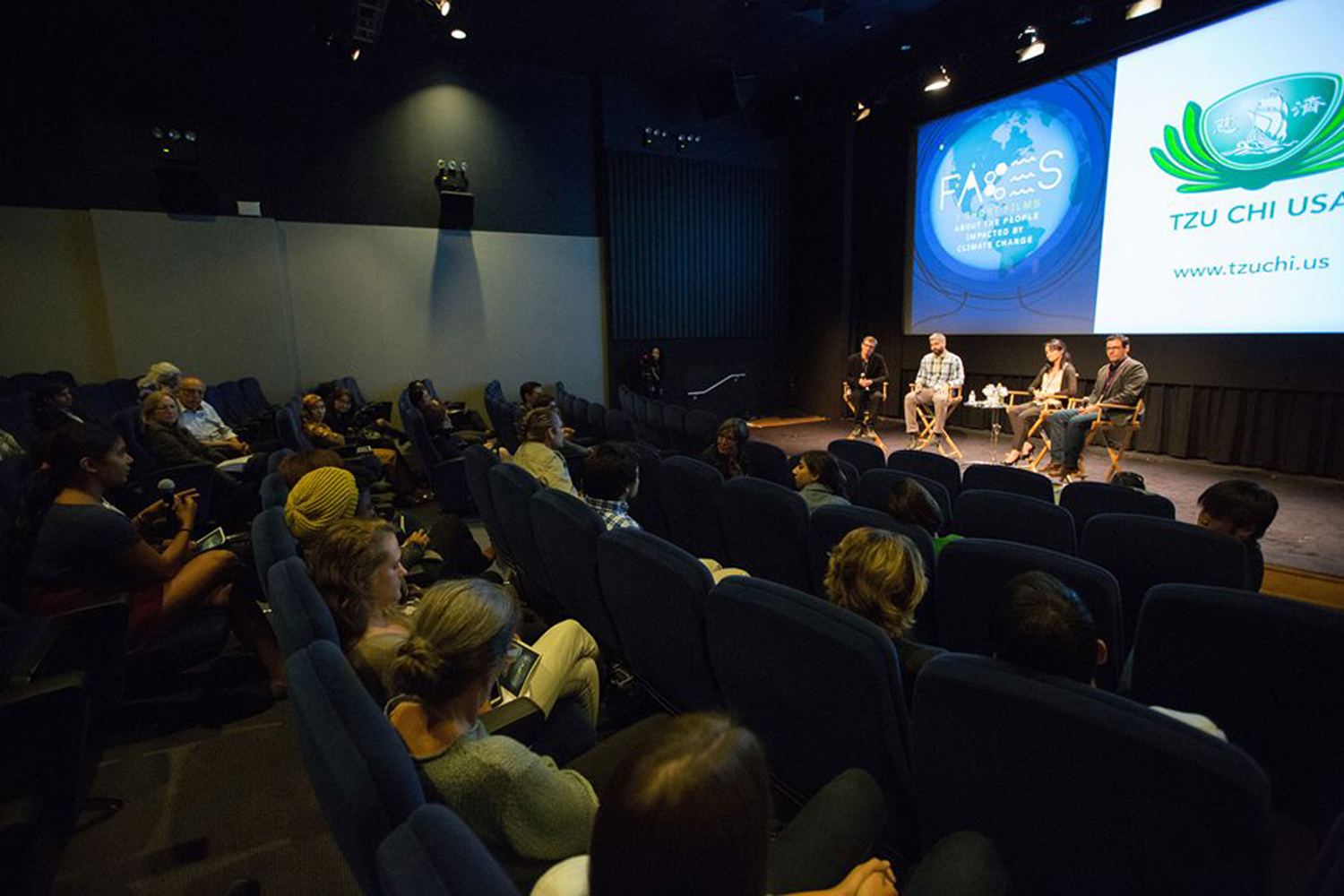
This notion of “comfort” and the attempt to improve and expand its scope is in so many ways the root of our problem. Limitations and discomforts are a part of life, yet our collective seeking to overcome or avoid them has created a runaway train of effects that’s now throwing discomfort right back in our faces. Climate disasters and extreme, unpredictable weather is the price we’re paying for all those cars, giant plush homes, and plethora of material products we crave and accumulate. Let the “discomfort zone” we’ve now entered force a fundamental shift in how we position ourselves in nature. Let’s acknowledge the shadow of our comfort seeking drive, and temper our greedy ways. If we don’t, it’s just going to continue getting a lot more uncomfortable for everyone, everywhere.
Tzu Chi USA’s FACES Event offered plenty of food for contemplation. I hope everyone left there motivated to make a difference through his or her own behavior and personal choices. I know I certainly did.
Photography by Peter Lin

